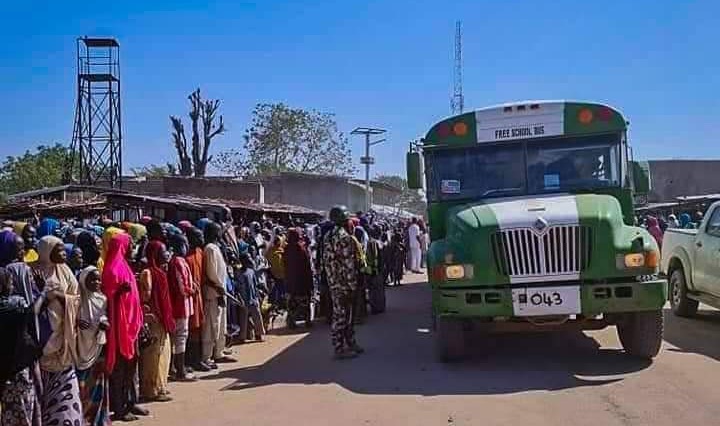Borno receives IDPs living in Cameroon (March 2021)
The National Commission for Refugees, Migrants and Internally Displaced Persons (NCFRMI) says insecurity and the increased number of internally displaced persons (IDPs) are major challenges of providing humanitarian support.
Imaan Sulaiman-Ibrahim, the federal commissioner for the NCFRMI, said this on Thursday at a state house briefing in Abuja.
Sulaiman-Ibrahim said the commission has recorded over 7,000 urban refugees, adding that those resettled in some parts of the country are thriving and own legitimate businesses.
While commenting on the management of abuse cases among IDPs, she said the commission was not used to crisis when it started, adding that it is working with IDPs to address abuse elements and over-dependence on government.
Advertisement
“The first challenge we are experiencing at the commission is security. In managing a humanitarian crisis, there are some areas you need to reach and you are unable to. I think that is a major problem because even when they (IDPs) are undergoing the crisis, sometimes, the places are not secured but they also require humanitarian support,” she said.
“The second challenge is the rising number. You will agree with me that we have had an unprecedented humanitarian crisis globally. These things keep happening; global warming just came from nowhere and we have to manage it regardless. We have to find a way to shrink the numbers as quickly as possible.
“There are hardly any funds for anything and they are required to be able to intervene quickly for these people. Nigeria is a signatory and also has obligations and responsibilities towards the 1951 convention to offer protection to anybody who is fleeing from persecution. If you go to Calabar and Lagos, urban refugees are thriving there and are legitimate business owners.
Advertisement
“The abuse element in IDP management, like I told you, we were not used to crisis and then crisis came and maybe we were intervening for IDPs without delisting them. The IDPs are not used to being IDPs. I think the lapses are from both ends. I think now it is our duty to delist IDPs as we give them interventions.
” Yes, I agree with you. There are abuse elements and we are working in collaboration with the IDPs so that there is no over dependence on the government.”
Add a comment






